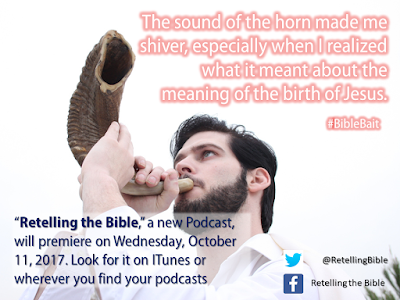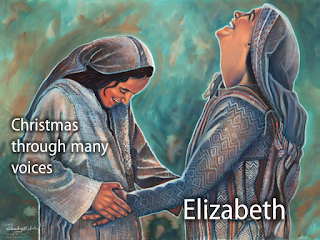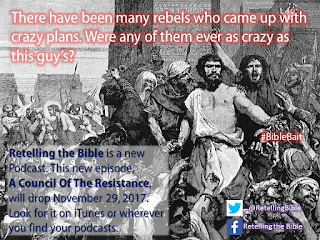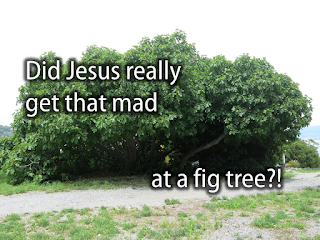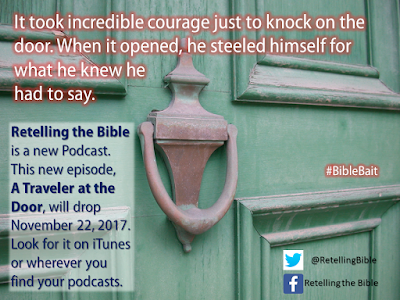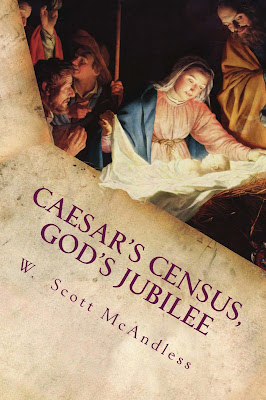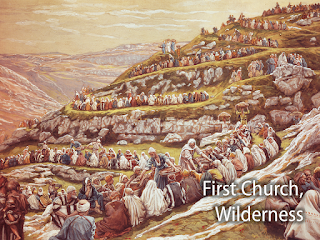Copyright © 2013 by W. Scott McAndless
The Gospel of Luke and the Gospel of Matthew have a great deal in common. They share much of the same material on the life and sayings of Jesus though they organize it somewhat differently. As far as we can understand from a study of the two texts, both Gospels were written independently (with neither making any reference to, nor apparently even having any knowledge of, the other) towards the end of the first century ce or perhaps even later.
Both gospels were written anonymously—with no names attached. It didn’t take the church very long to decide that they must have been written respectively by Matthew, one of Jesus’s twelve apostles, and Luke, an associate of Paul. But that is just tradition. The truth of the matter is that we really have no idea who might have written these books. All we have to help us to understand the interests, concerns and theological agendas of these two authors is what we find in the words they wrote, and it is better not to read anything into what they have written based on church tradition. I will continue to refer to these authors using the names that tradition gave them for the sake of convenience, but please keep in mind that the Matthew and Luke I am talking about are, in fact, figures of mystery whose true identities we may never know.
A deep study of the two gospels has led to a significant scholarly consensus that they shared common literary sources for much of their material. In particular, the theory has been put forward and generally accepted that they both used the Gospel of Mark (or perhaps an early version of it) as a source and that they also shared another major source that no longer exists apart from its traces in these two gospels. This other theoretical source is commonly called the “Q Gospel.”[1]
Because of these shared sources, parallels abound in the texts of these two gospels. But the birth narratives are quite different. Only these two authors attempted any sort of account of the birth of Jesus. (Of course, there are other non-canonical accounts of the birth of Jesus, such as The Infancy Gospel of James, but they were written later and were undoubtedly dependant on these two gospels.)[2] When Matthew and Luke came to write their gospels, their primary source materials likely made no more than passing references to the birth of Jesus, if they said anything at all. Both of them felt the need to include a story of the birth of Jesus anyway.
This would have made perfect sense to them. They naturally assumed that anyone as extraordinary as Jesus who had done and said such remarkable things and who had sparked such a powerful movement must have had an extraordinary birth. This was a common way of thinking in the ancient world. Once individuals, such as Alexander the Great, Julius Caesar and Caesar Augustus, rose to great prominence, people naturally began to think and speculate on the extraordinary conceptions and births that they must have had.
But a fascination with Jesus’s birth must have developed relatively late. In fact, it doesn’t seem to have been a point of interest at all in the earliest Christians writings such as the letters of the Apostle Paul. The Gospel of Mark also says nothing about it. So when Matthew and Luke began their accounts of the nativity, they could only draw from very sketchy source material at best. This seems evident from the fact that they actually only agree on a few select details in their narratives while they actually differ substantially in other matters.
Points of Agreement
There are three main points of agreement between the two stories: the location of Jesus’s birth, the names of his parents and the virginal state of his mother.
Place of Birth
Both gospels agree that Jesus was born at Bethlehem in Judea. This is actually quite extraordinary given that, when they were written, anyone who knew anything about Jesus knew that he was actually from the village of Nazareth in far distant Galilee. The other gospels and earliest Christian writings betray no knowledge that Jesus was from Bethlehem. The Gospel of John even makes a point of insisting on Jesus’s origins from Nazareth despite the fact that this appears to be a very negative thing:
Philip found Nathanael and said to him, “We have found him about whom Moses in the law and also the prophets wrote, Jesus son of Joseph from Nazareth.” Nathanael said to him, “Can anything good come out of Nazareth?”[3]
Later on, this same gospel records a significant controversy over Jesus’s origins from Galilee:
When they heard these words, some in the crowd said, “This is really the prophet.” Others said, “This is the Messiah.” But some asked, “Surely the Messiah does not come from Galilee, does he? Has not the scripture said that the Messiah is descended from David and comes from Bethlehem, the village where David lived?” So there was a division in the crowd because of him. Some of them wanted to arrest him, but no one laid hands on him.[4]
As it recounts such stories, the Gospel of John has a perfect opportunity to address the readers directly (as it does in other places)[5] and explain that, though Jesus grew up in Nazareth, he had actually been born in Bethlehem, which would surely answer both Nathaniel’s and the crowd’s objections to Jesus. The fact that it does not do so is a strong indication that any story about a birth in Bethlehem was not well known, if known at all, in the early church. Or it could even mean that, if there was such a tradition and John was aware of it, he was actively disputing its accuracy.
So it is rather interesting that both Matthew and Luke seem to have independently come to believe that Jesus was born in Bethlehem. Nevertheless, it is really not very hard to explain how that could have happened. There is a very clear Old Testament prophecy (explicitly cited in Matthew 2:6 and likely also in mind in the above passage from the Gospel of John) which had created an expectation in some quarters that the Messiah, when he came, would come from Bethlehem because it was the city where King David had been born:
But you, O Bethlehem of Ephrathah,
who are one of the little clans of Judah,
from you shall come forth for me
one who is to rule in Israel,
whose origin is from of old,
from ancient days.[6]
Because of this clear prophecy, it is quite likely that both evangelists would have believed that Jesus must have come from Bethlehem whether or not they had any evidence that he had been born there. This agreement is easily explained, therefore, despite the fact that there is no indication that either evangelist had any reference to a birth in Bethlehem in his source material.
Parents
Matthew and Luke also agree on the identity of Jesus’s parents: Mary and Joseph. They would have had Mary’s name from their common source, the Gospel of Mark, where she is named, along with Jesus’s brothers but, strangely, without any mention of a father:
On the sabbath he began to teach in the synagogue, and many who heard him were astounded. They said, “Where did this man get all this? What is this wisdom that has been given to him? What deeds of power are being done by his hands! Is not this the carpenter, the son of Mary and brother of James and Joses and Judas and Simon, and are not his sisters here with us?” And they took offense at him.[7]
So it is not at all surprising that the two evangelists should agree on the name of Jesus’s mother, but their agreement on the name of the father is a little harder to explain since he is not mentioned in Mark and likely not in the Q Gospel either. I would suggest that these two Gospel writers shared another source or tradition that identified Jesus’s father as Joseph. This does not seem unlikely because, even though Mark does not name a father, the Gospel of John, which was likely written somewhat later than Matthew and Luke, but that also used some of its own separate source material, does give Jesus’s name as “Jesus son of Joseph from Nazareth.”[8]
Mary’s Virginity
In the Gospel of Matthew, it is made abundantly clear that Mary was a virgin when Jesus was conceived and that she continued in that state until she gave birth to him. The Lucan story seems to affirm the same thing, though not so clearly. J. A. Fitzmyer has argued that, “When [Luke’s] account is read in and for itself—without the overtones of the Matthean annunciation to Joseph—every detail of it could be understood of a child to be born to Mary in the usual way.”[9] But most scholars who have looked at the question have come to the conclusion that the underlying assumption of a virginal conception is there in Luke as well.[10]
So I would not hesitate to say that Matthew and Luke agree on the virginity of Mary. This is a remarkable agreement because it is an idea that is unlikely to have come from their primary source material. It is not even a question that comes up in the Gospel of Mark unless it is a concern that could be read into Mark’s failure to name a father for Jesus, which seems unlikely. And, unlike the matter of the Messiah being born in Bethlehem, there is no clear Old Testament prophecy that requires that the Messiah be born of a virgin.
Matthew relates the virgin birth to a passage from the prophet Isaiah (which he cites in the Septuagint translation that contains the keyword virgin):
All this took place to fulfill what had been spoken by the Lord through the prophet:
“Look, the virgin shall conceive and bear a son,
and they shall name him Emmanuel,”
which means, “God is with us.”[11]
Matthew uses this passage to explain why Jesus had to be born of a virgin—because it had been prophesied. It helps him to come to a deeper understanding of the meaning of the incarnation of the Christ which he sees as a way in which “God is with us.”
Many would argue today that Matthew has misinterpreted that prophecy in Isaiah by taking it out of context and relying on a defective Greek translation. They would suggest that, in the context of the original passage in the original language, the prophet was actually speaking about a child that would be born to a young woman in the king’s household in his own day. But that matters little to Matthew, who obviously believes that much of what he reads in the Old Testament refers directly to the life and acts of Jesus.
Luke, when he grapples with the meaning of the virgin birth, doesn’t seem to have the Isaiah passage in mind at all. He certainly doesn’t mention it. He seems to be drawing rather on the stories from Genesis of Abraham and Sarah and their struggle to conceive a child despite Sarah’s infertility. When Mary is told by the angel Gabriel that she will conceive, her reaction is to say, “How will this be… since I am a virgin?”[12] Her response is reminiscent of the response of Sarah who is told in the Book of Genesis that she will conceive and have a child despite the fact that she is very old and post-menopausal.[13] Sarah also expresses incredulity in the face of a prediction of a conception that seems impossible, although the particular reason for the impossibility in her case is quite different.
Luke also seeks inspiration from the story of Hannah, the mother of the prophet Samuel—another woman who struggled to conceive a child. Mary’s song that celebrates her expectation of the birth of her son has many parallels to the song of Hannah:
The Song of Hannah
My heart exults in the Lord;
my strength is exalted in my God.
My mouth derides my enemies,
my strength is exalted in my God.
My mouth derides my enemies,
because I rejoice in my victory.
The bows of the mighty are broken,
but the feeble gird on strength.
Those who were full have hired themselves out for bread,
but those who were hungry are fat with spoil.
The barren has borne seven,
but she who has many children is forlorn.
The Lord kills and brings to life;
he brings down to Sheol and raises up.
The Lord makes poor and makes rich;
he brings low, he also exalts.
He raises up the poor from the dust;
he lifts the needy from the ash heap,
to make them sit with princes
and inherit a seat of honour.[14]
The Song of Mary
My soul magnifies the Lord,
and my spirit rejoices in God my Saviour,
and my spirit rejoices in God my Saviour,
for he has looked with favour on the lowliness of his servant.
Surely, from now on all generations will call me blessed;
for the Mighty One has done great things for me,
and holy is his name.
His mercy is for those who fear him
from generation to generation.
He has shown strength with his arm;
he has scattered the proud in the thoughts of their hearts.
He has brought down the powerful from their thrones,
and lifted up the lowly;
he has filled the hungry with good things,
and sent the rich away empty.[15]
Luke is clearly trying to come to grips with the unexpected and improbable pregnancy of Mary and he does so by reflecting on the unexpected and improbable pregnancies of women like Sarah and Hannah in the Old Testament. Of course, Mary’s case is unique because the reason why her pregnancy is unexpected is quite different from the reasons why Sarah and Hannah were not expected to have children. Sarah shouldn’t have had a child because she was too old, Hannah, because she was infertile, while Mary should not have become pregnant because she was a virgin. The reasons are different but there is a common theme of miraculous conception that runs through all three stories. Luke must have seen enough similarities between these three women to convince him that these Old Testament stories had been placed there to help him to explain a virgin birth.
So the two evangelists turn to very different Old Testament scriptures to understand the virginity of Mary and what it means. This suggests to me that they each have a puzzling piece of information that they are trying to understand. That is to say that they both have a piece of tradition—a teaching that has been passed down to them from the earlier church—that indicates that Jesus was born of a virgin and they are trying to comprehend it.
The New Testament writers often turned to important Old Testament stories to help them process and understand the things that happened to Jesus, and that is what Matthew and Luke do here. But they turn to quite different places: Matthew turns to the Prophet Isaiah while Luke turns to the Book of Genesis and to 1 Samuel.
That is why I think that Matthew and Luke are indeed drawing on an established early Christian tradition regarding the virginity of Mary. This point of agreement is very significant because it indicates that the church (or at least certain parts of it) very early on accepted a view of the conception and birth of Jesus that would have been really quite shocking to Jewish sensibilities. Although the notion of gods fathering children on human mothers was quite common in Greek myths and legends, the Jews had never told such stories about their God.
Points of Disagreement
In effect, we have three primary points on which these two evangelists agree. Obviously, these agreements are very important and meaningful, but we should not ignore the points on which they diverge. Unfortunately, these differences are not all that easy for us to see because we are in the habit of harmonizing these two accounts. Christian tradition has, for almost two thousand years, easily integrated the two birth narratives to the point that, when we think of the nativity, we automatically place Mary, Joseph and the baby at the manger surrounded by angels and shepherds (all elements from Luke’s story). We also add the Magi approaching with their gifts and the star shining overhead (from Matthew’s gospel). When we forget all those centuries of tradition and simply read Matthew’s gospel as if we’d never heard of anything that happens in Luke’s, and vice versa, we realize just how different these two stories really are. I see ten major points of divergence.
1. How the Couple Came to be in Bethlehem
Both Matthew and Luke were faced with a problem as they wrote their birth narratives. They knew very well that Jesus was from Nazareth in Galilee. Anyone who knew anything about Jesus knew that. But they also knew that, if he was the Messiah, he had to be from Bethlehem just like it said in the Book of Micah. So they each had to explain how Jesus of Nazareth came to be born in far off Bethlehem. Both evangelists were able to deal with this problem, but they dealt with it in very different ways.
Luke’s solution we have already discussed. Luke says that Mary and Joseph were originally from Nazareth, he calls it “their own town,”[16] and explains that they just happened to be in Bethlehem temporarily at the time of Jesus’s birth because they had travelled there to register during the census.
Matthew’s solution is quite different. If you simply forget everything that you have ever read in the Gospel of Luke (not to mention every Christmas pageant you have ever seen) and read Matthew’s story at face value, it is quite clear that he is operating under the assumption that both Mary and Joseph are from Bethlehem. It is their hometown and they even have a house there that they share once they are married and where the Magi visit them: “On entering the house, they saw the child with Mary his mother; and they knelt down and paid him homage.”[17]
Matthew has the opposite problem of Luke. He must explain why this couple who are from Bethlehem end up raising Jesus in the little village of Nazareth. This he does very handily in the following passage:
When Herod died, an angel of the Lord suddenly appeared in a dream to Joseph in Egypt and said, “Get up, take the child and his mother, and go to the land of Israel, for those who were seeking the child’s life are dead.” Then Joseph got up, took the child and his mother, and went to the land of Israel. But when he heard that Archelaus was ruling over Judea in place of his father Herod, he was afraid to go there. And after being warned in a dream, he went away to the district of Galilee. There he made his home in a town called Nazareth, so that what had been spoken through the prophets might be fulfilled, “He will be called a Nazorean.”[18]
As far as Matthew is concerned, Joseph isn’t from Nazareth at all. He only ends up there because it seems to be a good place to escape the notice of Archelaus, and because it was required in order to fulfil a prophecy. Matthew fails to explain why the family would have been safer under the jurisdiction of Herod Antipas, who was also a son of Herod the Great, in Galilee, and so his explanation is far from ideal.
One gospel writer says that Mary and Joseph were from Nazareth and just happened to be staying temporarily in Bethlehem when Jesus was born while the other assumes they were from Bethlehem and only raised Jesus in Nazareth to establish a new life away from one of Herod’s sons. This is the first and greatest contradiction between the two nativity stories and it cannot be easily overcome. There are many more.
2. Genealogy
Both Matthew and Luke give a list of the ancestors of Jesus. Matthew traces his lineage back to Abraham and Luke goes all the way back to Adam. They agree on the very important point that, as Messiah, Jesus is a direct descendant of King David. This information was found in their source material. The Gospel of Mark refers to Jesus as the “son of David.”[19] In addition, there seems to have been a very clear expectation among many Jews, based on Old Testament prophecy, that the Messiah, when he came, would be a descendant of David in some sense.[20]
Although they both make this all-important connection between Jesus and David in their genealogies, they do it through different ancestors. The genealogies do not correspond at all through several generations. Here is how the two accounts differ in the crucial generations:
Line of descent according to Matthew 1:6-16:
David, Solomon, Rehoboam, Abijah, Asaph, Jehoshaphat, Joram, Uzziah, Jotham, Ahaz, Hezekiah, Manasseh, Amos, Josiah, Jechoniah, Salathiel, Zerubbabel, Abiud, Eliakim, Azor, Zadok, Achim, Eliud, Eleazar, Matthan, Jacob, Joseph, Jesus
Line of descent according to Luke 3:23-32:
David, Nathan, Mattatha, Menna, Melea, Eliakim, Jonam, Joseph, Judah, Simeon, Levi, Matthat, Jorim, Eliezer, Joshua, Er, Elmadam, Cosam, Addi, Melchi, Neri, Shealtiel, Zerubbabel, Rhesa, Joanan, Joda, Josech, Semein, Mattathias, Maath, Naggai, Esli, Nahum, Amos, Mattathias, Joseph, Jannai, Melchi, Levi, Matthat, Heli, Joseph, Jesus
The lists are so glaringly different that the contradictions cannot be ignored. Down through many centuries, therefore, attempts have been made at harmonizing the two genealogies. The most popular solution is to say that one gospel (usually Matthew) is giving the ancestors of Joseph while the other (usually Luke) is giving those of Mary.[21] It is not, however, a very plausible explanation. Ancient Mediterranean society was extremely patrilineal—tracing descent exclusively through males—so it seems very unlikely that either gospel writer would have departed from the normal manner of recording a genealogy without clearly indicating what he was doing.
Arguments have been made that, when Luke writes, “[Jesus] was the son (as was thought) of Joseph son of Heli,”[22] what he actually means is “Joseph was the son in law of Heli” or, “Jesus was supposedly the son of Joseph but actually the grandson of Heli,” but neither of these translations is grammatically possible.[23]
It is also worth noting that at no point in his gospel does Luke suggest that Mary was a descendant of David. It is Joseph who is “descended from the house and family of David.”[24] In fact, Luke even suggests that Mary is connected to a different tribe from David, who came from the tribe of Judah. At least, he says that Mary was a close relative of Elizabeth who was “a descendant of Aaron” in the tribe of Levi.[25] It seems rather unlikely, therefore, that Luke thought that Mary was a descendant of David.
A more complex solution is to propose that the two genealogies are different because one traces direct descent while the other traces descent through adoption as was sometimes required by Hebrew law, particularly the law of levirate marriage.[26] This theory has found little support in modern times.[27] The most popular modern theory is to say that “Matthew gives the legal line of descent from David, stating who was the heir to the throne in each case, but Luke gives the actual descendants of David in the branch of the family to which Joseph belonged.”[28] This really solves little because it still leaves us with two contradictory lists that cannot be reconciled. This indicates that, if Matthew and Luke have any literary record at all beyond Old Testament genealogies, they have two different and completely contradictory lists. Any attempt to harmonize the two will be a futile exercise.
There are more significant differences between these two genealogies than just the contradictions between specific names. The two lists are very different in terms of underlying meaning as well. The list that Matthew offers includes not only King David but also many of his royal descendants who also ruled over the Kingdom of Judah.[29] With such a list, he is making the point that Jesus is the heir to the entire royal line of Judah, not just to David. This is probably a part of Matthew’s overall effort to emphasise the kingliness of Jesus throughout his gospel.
But Luke’s genealogy names no kings other than David. This gives his list a different tone. He seems to be recounting the history of a very different family—a fairly normal Jewish family that just happens to have one very illustrious ancestor. I suspect that Luke is thinking of Joseph as belonging to a less successful branch of David’s family. They were not the ones who went onto great things but rather the ones who stayed behind in Bethlehem and continued to live on and farm the land that they inherited from Jesse, David’s father.
This would also be the same land that is featured in the Book of Ruth—the land on which Ruth gleans during harvest time and where she meets her future husband, Boaz, whom Luke lists as the great-grandfather of King David.[30] The family that Luke is thinking of may have lived on this famous piece of land but he still sees them as the poor rural cousins of the powerful kings who ruled in Jerusalem—forgotten and left in obscurity for generations until that line of kings had failed and their time finally came.
So, with his genealogy, Luke places the emphasis on Jesus’s humble origins—an emphasis that certainly fits with his presentation of Jesus as a humble man, friend of the poor and lowly.
3. The Political Climate
As we have already noted, in Matthew’s Gospel, the political shadow of Herod the Great looms large. He seems to have absolute power of life and death over all the people. In Luke’s gospel, Herod has no influence over events at all and the only power we hear of is the power of Rome.
4. Date
There is, I suggest, a contradiction in dating. This is a very controversial point of difference and I will look more deeply into this question in a future chapter, but I will simply posit for now that a simple, straightforward reading of each gospel without reference to the other will lead to the conclusion that they are saying that Jesus was born at a different time. The difference is about a decade.
5. Socio-Economic Status
In Luke’s narrative, Jesus is famously born into abject poverty and laid in a manger because of a lack of adequate housing. The idea seems to be that this poverty is temporary and is a result of the extraordinary travelling associated with the census. Nevertheless, the lowly social position of Jesus at his birth has important symbolic meaning to the author of this gospel and introduces a theme that will be developed through the rest of his story of Jesus’s life and ministry.
Matthew makes no mention of such poverty. On the contrary, the family lives in a house in Bethlehem and they receive precious gifts of gold, frankincense and myrrh from the magi. They have sufficient wealth (perhaps because of the gifts) to make a sudden trip to Egypt and when they return from there they have enough financial independence to make their home in Nazareth, a place of their own choosing.
6. The Birth Announcement
In Luke’s Gospel, the news of the imminent birth of the Messiah is given exclusively to Mary by an angel who appears to her while she is awake.[31] In the Gospel of Matthew it is Joseph who receives the announcement from an angel in a dream.[32] There is, in this, a minor point of agreement, the annunciation of the birth by an angel. This agreement, together with certain similarities in the angelic message between the two gospels, has led Raymond Brown to suggest that there was a “basic pre-gospel annunciation tradition that each evangelist used in his own way.”[33] Brown is saying that he thinks there was a tradition circulating in the early church that the birth of Jesus had been announced beforehand by an angel and that Luke and Matthew both heard it independently and incorporated it into their stories in different ways.
This is a very intriguing idea. But it does not change the fact that the two annunciation stories, as we have them, are very different. Not only is the announcement made to two different people, but it is also made at two significantly different times. According to Luke, Mary receives the news before she has even conceived the child while Matthew says that Joseph receives the news much later when the pregnancy has progressed enough to cause a public scandal and yet Joseph has apparently not heard anything from Mary or her family about the announcement that, according to Luke, had been made to Mary months earlier.[34]
This dissimilarity between the two gospels is more than just a matter of who was told what by whom and when. It marks a major difference between how these two writers are telling their story. In his account, Matthew makes Joseph his central character. Joseph is not just the one who receives the messages but also the one who takes all of the initiative. He decides to take Mary as his wife, he takes the family to Egypt and he is the one who decides that they should settle in Nazareth after the death of Herod the Great. Mary, for her part, says nothing and does nothing in Matthew’s account apart from being pregnant and bearing a child. Joseph is the one who understands what is going on and who acts accordingly.
All of this is fairly turned around in the Gospel of Luke where the story is much more focussed on Mary, her feelings and her decisions. She is the one who chooses to submit to God’s plan for her by saying, “Here am I, the servant of the Lord; let it be with me according to your word.”[35] She is the one who treasures all that is said and attends to what happens and she ponders all of it in her heart.[36]
Joseph, in the Gospel of Luke, says nothing and does nothing except go up from Nazareth to Bethlehem because he belongs to the house and lineage of David. There is no indication at all in Luke’s account that Joseph even knows what is going on. You might well expect, given the extraordinary means by which Luke says that Mary conceived her child, that Joseph should at least ask a few questions or lodge a few complaints, but, if he did, Luke certainly shows no interest in his concerns.
And so the existence of these two very different annunciation stories underlines the very different approaches that Matthew and Luke have taken to their accounts.
7. Marital Status
In both Gospels, Mary and Joseph are first introduced as two people who are engaged to be married. According to Matthew’s account, the engagement lasts until the point when Mary’s pregnancy begins to show which in turn creates something of a public scandal.[37] At this point, upon receiving a message from God in a dream, Joseph takes her as his wife, but has no marital relations with her until she has borne a son.[38] It would appear that Matthew is saying the couple were married at least a few months before the birth.
Luke tells the story a little bit differently. He introduces Mary initially as “a virgin engaged to a man whose name was Joseph.”[39] And then, approximately nine months later, just before the birth of Jesus, he again refers to the couple not as married but as still engaged to be married: “He went to be registered with Mary, to whom he was engaged and who was expecting a child.”[40] Luke gives no indication at all of when Mary and Joseph might have been married, but he strongly implies that it was not until after Jesus was born.
This does seem to be a contradiction, though, perhaps, we need not make too much of it. It seems likely that in first century Palestine the line between engagement and marriage could be somewhat blurry at times. The engagement was likely the more serious of the two as it was the moment when pledges were given and promises made. An engagement, once established, could not be broken without it being considered a divorce, as Matthew indicates in his account of Joseph’s moral dilemma.[41] The marriage itself was more of an opportunity to celebrate the fact of the wife taking up residence in her husband’s home and the physical consummation of the union as is evidenced in a number of Jesus’s parables and sayings.[42] It is why both evangelists put the emphasis on the couple’s engagement rather than on the marriage.
It would seem that neither evangelist is overly concerned with the date of the wedding. They are far more concerned with making it quite clear that there were no sexual relations between Mary and Joseph prior to the birth of Jesus because this is, for them, the essential theological point in the account. In fact, they both agree that the couple is betrothed and yet has not consummated its relationship. Luke works under the straightforward assumption that a betrothal that is not yet consummated is not yet a marriage, while Matthew finds it possible for the couple to be married and yet to have no marital relations. So, in effect, they are both saying the same thing but using different words because each has a different understanding of what marriage means and where the line between betrothal and marriage is drawn.
 |
| One of these things does not belong here. |
8. Angels, Dreams and Stars
In both gospels the birth of Jesus is accompanied by heavenly messages. But the mode of communication differs sharply. Luke tells of angels who deliver their messages directly to Mary and, later, to a group of shepherds. Communication from God always comes directly by means of these heavenly messengers.
In Matthew’s Gospel, however, God communicates only through dreams. Twice an angel appears to Joseph in a dream, and once the Magi receive a message in a dream.[43] This difference in modes of communication is surely not insignificant. There is a very big difference between a message received while you are awake and fully aware and a message received in your sleep. For one thing, dreams always require interpretation in the Biblical tradition which would seem to make them a less certain way of communicating.[44] That Matthew only speaks of one type of communication while Luke only speaks of the other indicates that they are approaching the event of the birth from quite different angles.
In Matthew’s Gospel, God also communicates, though even more indirectly, through the appearance of a star. This heavenly sign, however, must also be interpreted much like a dream and apparently only the Magi are able to discern the meaning in its appearance (though, of course, the magi inadvertently pass the information on to King Herod with tragic results). The star, despite our continued insistence on placing it above the manger, does not appear and is not mentioned in Luke’s Gospel.
9. Status of the Visitors
We certainly have two very different groups of people visiting the child Jesus in the two gospels. On the one hand, in Luke’s Gospel, we have poor shepherds. Shepherds were considered to be on the very lowest rung of society. They were dirty, unkempt and generally shunned by the rest of society. Their attendance at the manger soon after the birth certainly adds to the humbleness of the family’s circumstances and helps Luke to make clear the lowliness of the birth of the messiah.
In the Gospel of Matthew, on the other hand, the only visitors to the child who are mentioned are wise and learned Magi from a distant country. They must also be extremely wealthy men to be able to make such a long journey in response to a sign they have seen in the sky. Whatever point Matthew is trying to make by mentioning these visitors, it is certainly a very different one than Luke is making by talking about the shepherds.
10. Old Testament Images
Both Matthew and Luke make a large number of both direct and indirect Biblical references in their accounts of Jesus’s birth. Matthew tends to make the references quite overtly while Luke can be much more subtle.
This is only to be expected because we know that the early church had a strong tendency to turn to Old Testament prophecies and narratives to understand and interpret the things that Jesus said and did. What we call the Old Testament today was the only Bible that they had. It was the place to which they naturally turned to find answers to anything that puzzled them in the traditions that came down to them. Interpretations of Old Testament passages that illustrated the life of Jesus must have been widely shared and discussed in the early church. They were used at the basis of teaching, instruction and preaching. This means that it is significant that these two gospel writers turn to quite different parts of their Bible to understand Jesus’s birth and they never turn to the same passages. This would seem to indicate that, when they came to write, there were no fixed traditions regarding which Old Testament passages applied to the birth of the Messiah.
I won’t give an exhaustive list of all the Biblical images that are used in the two gospels, but here are a few key examples:
Old Testament Imagery in Matthew:
· Herod’s slaughter of the innocents in Bethlehem has many parallels to the story of the birth of Moses and Pharaoh’s attempts to kill him. (Exodus 2:1-10)
· The Magi and the gifts that they bring are connected to the prophecies of Isaiah 60:1-6: “A multitude of camels shall cover you, the young camels of Midian and Ephah; all those from Sheba shall come. They shall bring gold and frankincense, and shall proclaim the praise of the Lord.”
· The appearance of the guiding star is likely connected to the “star prophecy” in Numbers 24:17: “A star shall come out of Jacob, and a scepter shall rise out of Israel.”
· The virgin birth is explained by and connected to the promise of the coming of Emmanuel by a reference to Isaiah 7:14.
· Joseph’s dreams and his interpretations of them are very reminiscent of the story of another Joseph, the son of Jacob, and his dreams in the Old Testament. (Genesis 37 ff.) The parallels between the two Josephs even extend to them both having the same father, Jacob.[45]
Old Testament Imagery in Luke:
· Joseph’s return to his ancestral home is connected, I will argue, to the command to celebrate the jubilee in Leviticus 25.
· The key role for the shepherds puts us in mind of prophecies such as the one found in Jeremiah 23:1-8
· The virgin birth (and the birth of John the Baptist) is related to the stories of a number of women in the Old Testament who had difficulty having children—especially Sarah and Hannah. Mary’s song of praise in Luke is remarkably close to Hannah’s song in 1 Samuel 2:1-10.
· The story of the visit of the Angel Gabriel to Mary and his announcement that she will have a son contains many parallels to the account of the visit of three angels to Abraham and Sarah in Genesis 18.
Dealing with the Differences
When you look at the nativity stories in this way, you begin to realize that they disagree with one another far more frequently than they agree, although, it must be acknowledged that many of these differences are not direct contradictions. Saying that the announcement of the birth of Jesus was made to Mary, for example, does not mean that an announcement could not have also been made to Joseph. Whether they are contradictions or not, there is no denying that the two evangelists tell quite different stories—different in tone, in emphasis and in content.
What we have tended to do throughout Christian history is to try to paper over these differences. It is possible, if you really push, to overcome some of these differences and force the birth stories to harmonize with each other. For example, some will argue that you can account for the couple living in a house when the magi arrive in Matthew’s gospel by saying that a lot of time has passed (perhaps up to two years) since the birth in the manger that Luke’s gospel speaks of, and that the couple has managed to arrange for some permanent housing in the interim. Of course, such a harmonization fails to explain why the couple remained in Bethlehem after the child was born if they only went there briefly to be registered during the census.
Nevertheless, it would seem that, if you push and twist the accounts in certain ways, you can make them harmonize to a certain extent. Perhaps that is fine for some. My problem with such harmonization attempts is this: even if you could make all of these differences go away by pushing and twisting what the individual gospel writers say, you would definitely lose something in the process. You would have distorted your original texts and made them say things that the writers never intended. To accomplish such a feat, you would need to decide that the harmonized account you are aiming for is more important than what each individual evangelist is trying to say. You would lose their distinctive voices.
We are incredibly blessed to have these two nativity stories. They have been left for us by the early church as resources for us to use to learn what it means that Jesus of Nazareth came to live among us and to show us the true nature of the love of God. For that reason we cannot afford to diminish their power. We must be willing to read these texts just as they are and not impose some artificial harmony on them.
For this reason, in order to truly appreciate what Luke is trying to teach us, I choose to read his text as if it were the only account. For the rest of this exploration, while reading what Luke wrote, I will do my best to forget that I ever heard of the visiting magi, the star or King Herod’s evil ways. Let’s let Luke speak for himself and tell the story on his own terms.
Note: The above article is taken from the book Caesar's Census, God's Jubilee, by W. Scott McAndless. The book is available from Amazon in paperback and in ebook format from many ebook sellers.
Rev. McAndless is also presently retelling the Christmas story by looking exclusively at the story as told in the Gospel of Luke in a podcast called "Retelling the Bible." You can find the podcast at the following links:
Rev. McAndless is also presently retelling the Christmas story by looking exclusively at the story as told in the Gospel of Luke in a podcast called "Retelling the Bible." You can find the podcast at the following links:
[1] Many books have been written on the “Two source hypothesis.” There is an excellent summary of the theory in Christopher Tuckett, Methods of Interpretation, Fortress Press, Philadelphia, 1987. pp.78-94.
[2] R. J. Miller, Ed. The Complete Gospels, Annotated Scholars Version, HarperSanFrancisco, 1994. pp. 380-382
[9] Fitzmyer, J.A., “The Virginal Conception of Jesus in the New Testament,” Theological Studies, 34 (1973) pp. 566-67.
[10] Raymond Brown devotes a great deal of time examining this argument and comes to the conclusion that Luke is in fact clearly saying that Mary remained a virgin until Jesus was born. Brown, pp. 298-309.
[29] See 1 Chronicles 3:10-16. All of the names between David and Jechoniah are no doubt intended to be the names of kings who ruled in Jerusalem. Spelling variations between the Old Testament names and the names that appear in Matthew are there because Matthew is writing in Greek, not Hebrew.



